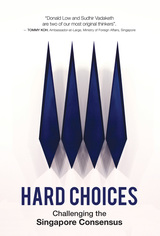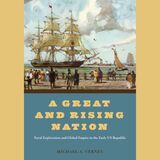
Listen to a short interview with Donald CritchlowHost: Chris Gondek | Producer: Heron & Crane
Despite significant losses in the 2006 midterm elections, the Republican Right remains a powerful and defining force in American politics. Donald Critchlow, a leading historian of American conservatism, shows that time and again the GOP Right appeared defeated, only to rebound with explosive force. The ascendancy of the GOP Right was not preordained, nor was its political triumph inevitable. Rather, the history of the postwar Right was one of fierce political warfare as moderate Republicans battled right-wing Republicans for control of their party, and conservatives battled liberals for control of government. In the struggle against the dominant New Deal state, conservatives gained control of the Republican party, but their advance against liberalism and the Democratic party proved less steady. At each point the accident of historical circumstance precluded a predictable outcome.
In this provocative history of the Right in modern America, Critchlow finds a deep dilemma inherent in how conservative Republicans expressed their anti-statist ideology in an age of mass democracy and Cold War hostilities. As the Right moved forward with its political program, partisanship intensified and ideological division widened--both between the parties and across the electorate. This intensified partisanship reflects the vibrancy of a mature democracy, Critchlow argues, and a new level of political engagement despite its disquieting effect on American political debate.
The Conservative Ascendancy boldly captures the twists and turns of the GOP Right over the last sixty years, offering a story of how deeply held beliefs about the nature of the individual and the good society are translated into political power.

But the policy and political conundrums that Singapore faces today are complex and defy easy answers. Confronted with a political landscape that is likely to become more contested, how should the government respond? What reforms should it pursue? This collection of essays suggests that a far-reaching and radical rethinking of the country's policies and institutions is necessary, even if it weakens the very consensus that enabled Singapore to succeed in its first fifty years.
READERS
Browse our collection.
PUBLISHERS
See BiblioVault's publisher services.
STUDENT SERVICES
Files for college accessibility offices.
UChicago Accessibility Resources
home | accessibility | search | about | contact us
BiblioVault ® 2001 - 2024
The University of Chicago Press









